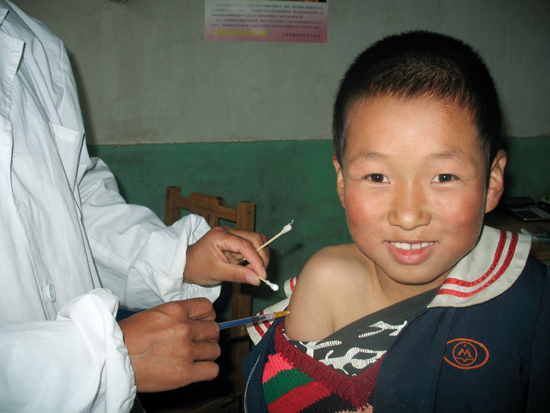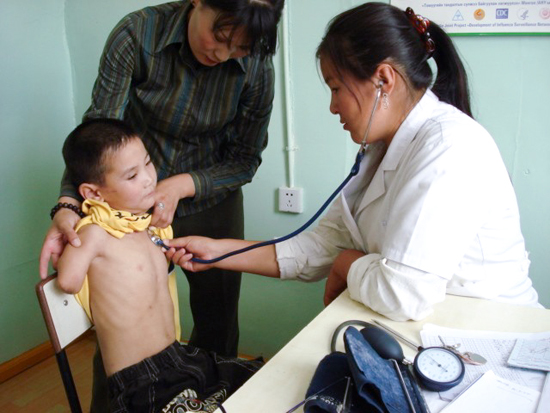
By Dr. Mesfin Teklu
Are global health officials on the verge of ignoring a key lesson of the H1N1 flu outbreak at the same time it dominates their discussion at the World Health Assembly in Geneva? While the potential pandemic requires urgent attention at this year's abbreviated forum, missing the moment to address other deadly vulnerabilities also puts millions of lives in further jeopardy -- just not from influenza.
Top priorities risk falling off the table: strengthening primary health care and addressing the living conditions that determine health across the globe. WHO decision-makers, building on their strong leadership in the pandemic response so far, would be wise to balance this with their broader responsibility to set the right agenda for health in developing countries.
In its jump from a small mountain village to some 40 countries, the outbreak of the new flu reminds us that an infectious pathogen can affect anyone, anywhere, and can't simply be stopped by border control. This underscores a need for constant readiness and a strong public health system to curb potential contagious diseases. Mexico, the U.S. and most nations affected so far have a higher capacity to respond than most.
In many places where I work, however - dozens of the globe's least developed nations - that isn't the case. Already, nearly 10 million infants, children and mothers lose their lives to avoidable causes each year, unacknowledged by urgent high-level responses or flurries of headlines.
Earlier this month in Addis Ababa, where organizations from Eastern and Central Africa met to ensure countries are prepared for pandemics, we were confronted again with a worrisome reality: many nations don't yet have preparedness plans. In regions daily facing a high burden of illness and death from existing pandemics of malaria, tuberculosis, HIV and AIDS and other diseases, putting aside resources for the future is an exceedingly difficult choice. That holds true in Asia, Latin America and the Caribbean, as well.
We can't isolate pandemic preparedness from the general state of health care in any country. Humanitarian relief in a rapid-onset scenario is by definition a last resort. It cannot be the chief way we respond to emergencies if we are serious about saving the lives of children and their families from needless death. Building and fixing health systems, from the community level to the top, is crucial.
When we enable households in all countries to defend themselves and slow transmission, the world can successfully unite to reduce illness and death when a pandemic strikes. Local communities need support now to be healthy and protect themselves. This counts clean water and soap to wash hands, better hygiene habits, training and protection for health staff to avoid infection when caring for a sick or dying patient, and food and nutrition to reduce the vulnerability of large populations of women, infants and children.
Too many people face poor access to basic health services, whether in El Salvador, Ecuador or Ethiopia. Obstacles are financial and physical - impoverished patients are bereft of cash to pay for treatment while a lack of roads and transport in rural areas means the sick must travel long distances to reach a clinic, only to find it understaffed or without basic supplies.
When new epidemics reach these places, illness and death from all causes mount as overwhelmed health workers become too strapped to provide care beyond the routine cases that still need treatment. Attempts to track and stop infectious threats are hobbled where strong health networks are absent and staff unable to monitor outbreaks or mobilize local resources to address them.
Mustering the resources and political will to strengthen weak health systems isn't optional or a luxury for better economic times. Recent weeks have shown us that wealthy countries are not immune to health threats rising in rural or marginalized communities. And while health system strengthening alone can't manage a full-blown pandemic, it can help avert the worst consequences.
If we allow a novel influenza virus to run rampant through developing countries, killing as it goes, we will not be able to slow down global transmission, nor have enough time to prepare and produce anti-virals or a vaccine. We ignore at our own peril the need for functional national health systems reaching vulnerable communities throughout the developing world.
The real pandemic response is to demand that world leaders, national governments and aid groups invest in all aspects of health systems, including training health workers and forging resilient networks to serve communities in normal times. Remember: many low-cost, effective interventions work well in resource-poor settings and will save millions of lives each year whether there's a flu pandemic or not.
World Health Assembly participants have a responsibility to keep this high on their agenda in Geneva this week. Let us not be so blinded by an acute need that we fail to treat the deadly underlying disease.
Dr. Mesfin Teklu is an Ethiopian health expert based in Nairobi, Kenya. He oversees health and nutrition programming in emergency responses for the relief, development and advocacy agency World Vision, which works in 100 countries.


